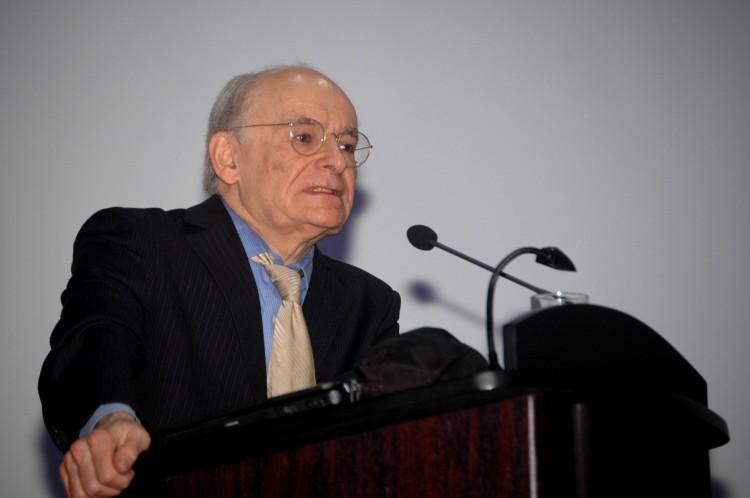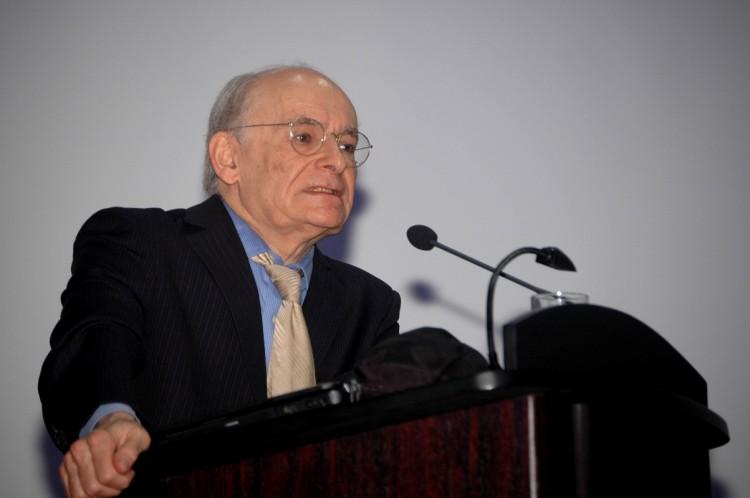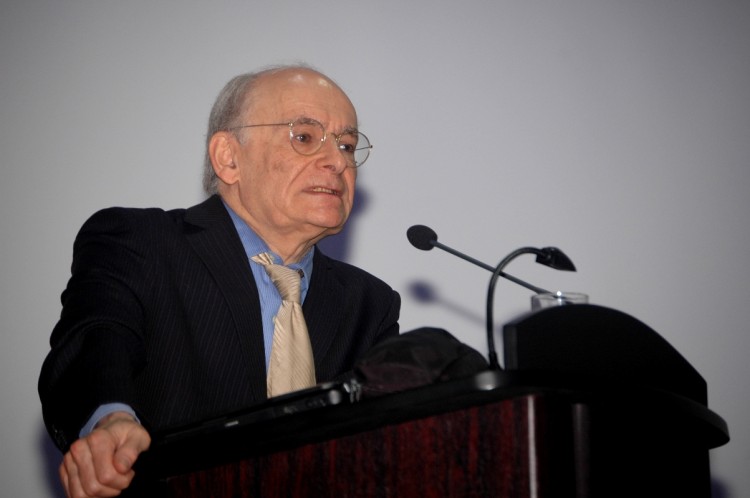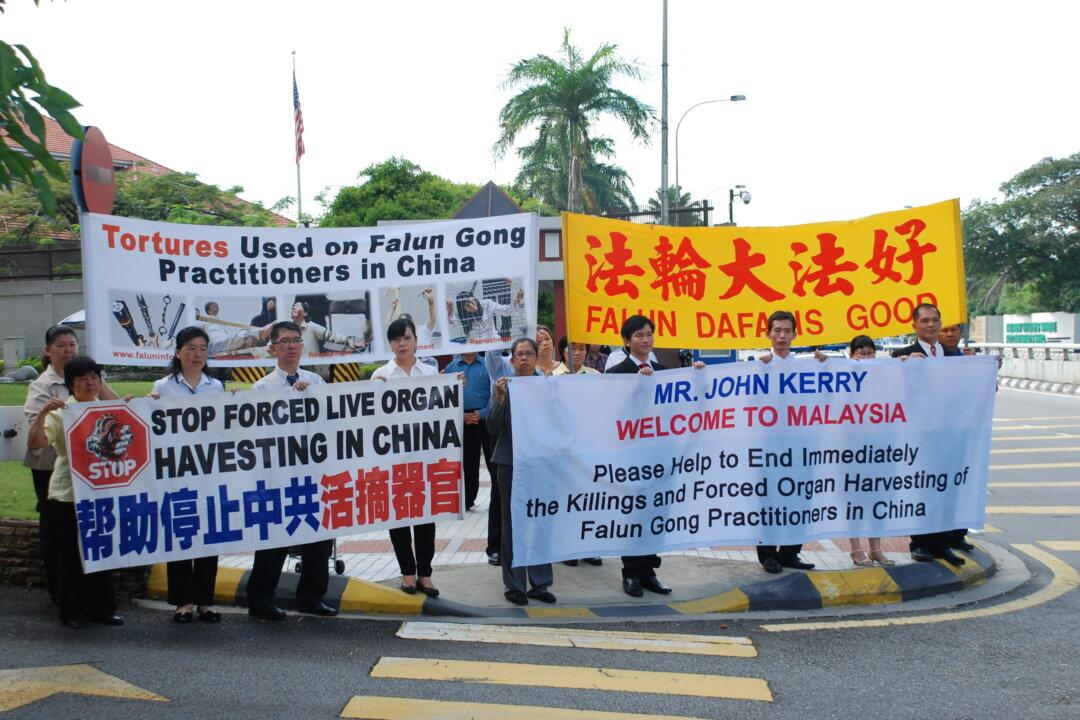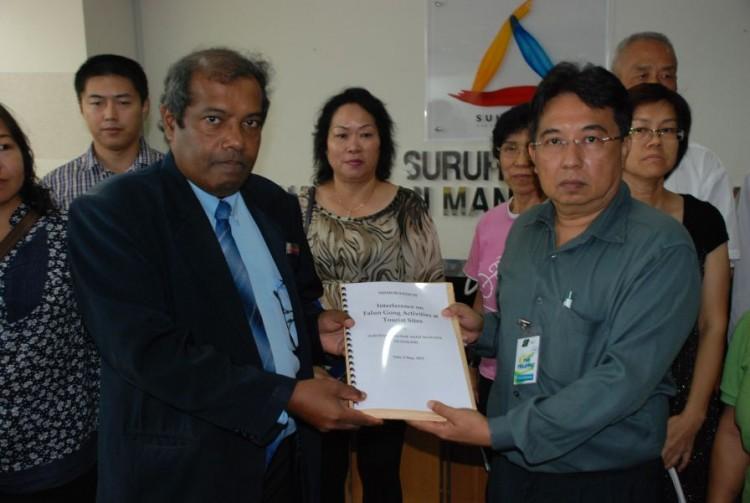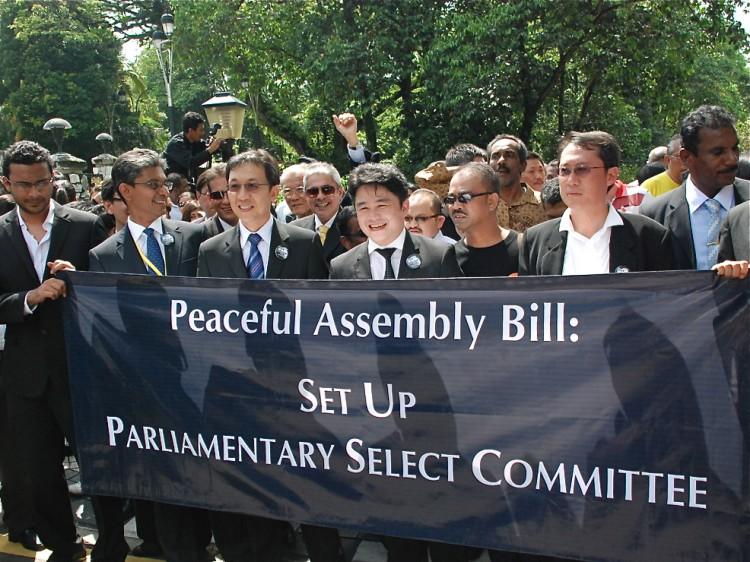Canadian human rights lawyer David Matas joined Malaysian transplantation experts in raising public awareness about the dangers of, and the unethical practices involved in, illegal organ transplants at the Academy of Medicine in Kuala Lumpur on July 10.
Mr. Matas was invited by the Transplantation Unit (Medical Development Division) under the Health Ministry and the Malaysian Society of Transplantation, to talk about the realities and risks of illegal organ transplantation.
Around a hundred people attended the talk where Mr. Matas spoke of his research into living organ harvesting abuses in China. Co-author of “Bloody Harvest: The killing of Falun Gong for their organs,” Mr. Matas said that there are many kinds of evidence that support the conclusion that healthy Falun Gong practitioners, who have been detained in labor camps, are killed for the organs.
“David Kilgour [former Canadian MP] and I did this report and decided that it was true based on the evidences we could accumulate,” said Mr. Matas. “There are different ways to stop the organ harvesting. One is stopping the persecution of Falun Gong, another is to empty out the labor camps. The third way is stop the killing of prisoners for their organs; stop the killing of all prisoners [and] you stop the killing of Falun Gong practitioners.”
Mr. Matas told the audience his study focuses on organ harvesting issues in China and there are many organ transplant abuses in other countries as well.
“China presents a formal matter of organ transplant abuse that you don’t see anywhere else, which is state sanctioned organ transplant abuse. These are state hospitals using prisoners. In other countries, organ transplant abuse is black market,” Mr. Matas explained.
After the organ harvesting in China was exposed, Mr. Matas told reporters that governments of the world are responding to it. He said there are a lot of changes, including changes inside China itself.
“In Australia, there is official government policy that they do not train Chinese surgeons in organ transplant. In Taiwan, the government has banned transplantation brokerage. In Israel, they have cancelled the insurance system that used to pay for people to take transplant in China, and they told us this is because of our report,” he said.
“In China, they said they are giving priority to local patients. They also setup a registration system that only registered hospitals can do transplant. They also at least setup a donor system,” Mr. Matas said.
During his talk, Mr. Matas gave 14 recommendations to Malaysian officials and to the medical industry. Among them were: Don’t refer patients to China for transplants; Don’t publish transplant research from China; Don’t train Chinese surgeons and transplant surgical techniques; Don’t authorize insurance to patients going to China and or coming back from China; Do not allow transplant professionals from China to join the professional associations unless they agree not to participate in transplants where the sources are from prisons.
Mr. Matas, along with Mr. Kilgour, were nominated for the Nobel Peace Prize in 2010 for their work related to the investigation of organ harvesting crimes against Falun Gong practitioners in China.
In addition to their earlier publication of two investigative reports in 2006 and 2007, Mr. Kilgour and Mr. Matas co-authored “Bloody Harvest: The killing of Falun Gong for their organs,” a 2009 book detailing evidence that tens of thousands of Falun Gong practitioners had been killed by the Chinese regime through the process of extracting their organs for lucrative transplant surgeries.
Falun Gong, also known as Falun Dafa, is a traditional Chinese spiritual practice with teachings based on the principles of truthfulness, compassion and tolerance, and that also involves doing gentle exercises and sitting meditation. The Chinese regime began persecuting the group in 1999 after the decision of former Party leader Jiang Zemin, who feared the popularity and rapid growth of the practice.
Dangers for Recipients
Speaking to the media after the talk, Dr. Ghazali Ahmad, host of the seminar and head of the Nephrology Department at Kuala Lumpur Hospital, explained that illegal and unethical transplants pose great risks to the recipients. He said that any form of organ transplant is major surgery and the patient will need to take life-long medication. Not all patients, he added, are suitable for an organ transplant.
Dr. Ghazali said that patients seeking to have an illegal organ transplant overseas faced a number of dangers.
“Firstly, we don’t know the background of the donor… they could be convicted prisoners,” he said adding that in such situations it would be difficult to have background checks and all required tests done to ascertain the safety of that person to donate an organ, which could lead to the transferring of an infection.
The other risk, he said, was that the recipient could perhaps not be suited to the rigors involved in having a transplant done.
“A transplant is major surgery; patients need to take life-long potent medicine which can decrease immune system that can increase risk of infection,” he said.
“There are examples of patients who went overseas and did not come back; they died there. We also have patients who came back and developed coronary artery diseases complications and died. Some cases developed infections, including viral infections, which may not cause them to die immediately but cause a lot of misery,” he said.
“The transplant team overseas will not deal with the background [of the recipient] and will not bother with after-transplant follow up and any complications,” said Dr. Ghazali.
He said in an effort to discourage Malaysians seeking organ transplants overseas, the government hospitals this year stopped providing free immuno suppressive drugs to those patients returning from illegal overseas organ transplants.
Dr. Ghazali said there are currently about 26,000 kidney disease patients in Malaysia, about 16,000 of them are suitable for an organ transplant, but local kidney donors number less than 50 people per year.
“Organ transplants in a government hospital cost just about RM500, but getting the organ transplant done in overseas cost about RM150,000 to RM200,000. The government recognized the situation of illegal organ transplant practices are happening abroad. Although the patients may be able to obtain the organ abroad, there could be criminality and ethical issues involved,” said Dr. Ghazali.
Register as an Organ Donor
Dr. Lela Yasmin Mansor, Chief National Manager of National Transplant Resource Centre, said her unit is responsible for managing the organ donation, donor registry and deceased donation in the country. She encouraged more Malaysians to register as a deceased donor as current donor pledged registry only constitutes less than about 0.6 percent of the total population.
When asked about her opinion about David Matas’s talk, Dr. Lela said that the reason Mr. Matas was invited is they hope that through this opportunity to let the public, media, and everybody know that going overseas for organ transplant is not the answer.
“It’s seems so much easier for a patient to find an organ overseas, but that also means you could be dealing with illegal or even unethical ways of getting the organ,” said Dr. Lela.
She said that Malaysia should try to increase its own organ donation rate. “We have 7,000 people die on the road every year and most of them are young. We can do it ethically, professionally and it’s medically safe, because we can check the donor’s background history, screen the patient and the organs can go to the best well match recipients,” said Dr. Lela.
Maintain a Healthy Lifestyle
Dr. Harjit Singh, President of the Malaysian Society of Transplantation, said the best solution to the issue is for individuals to take better care of their health. He further explained the dangers faced by the patients seeking a illegal transplant overseas.
“If a patient has the transplant done in legal centres in Malaysia or other countries where transplant is done ethically and legally, the complication will be much lesser. If they go for commercialized transplantation, then it involves profits, dollars and cents,” said Dr. Singh.
“They are going to cut corners doing most of the tests required. Patients will get organs and results that are sub-optimum. This will actually create more problems for the patients when they come back,” he said.
The Epoch Times publishes in 35 countries and in 19 languages. Subscribe to our e-newsletter.
